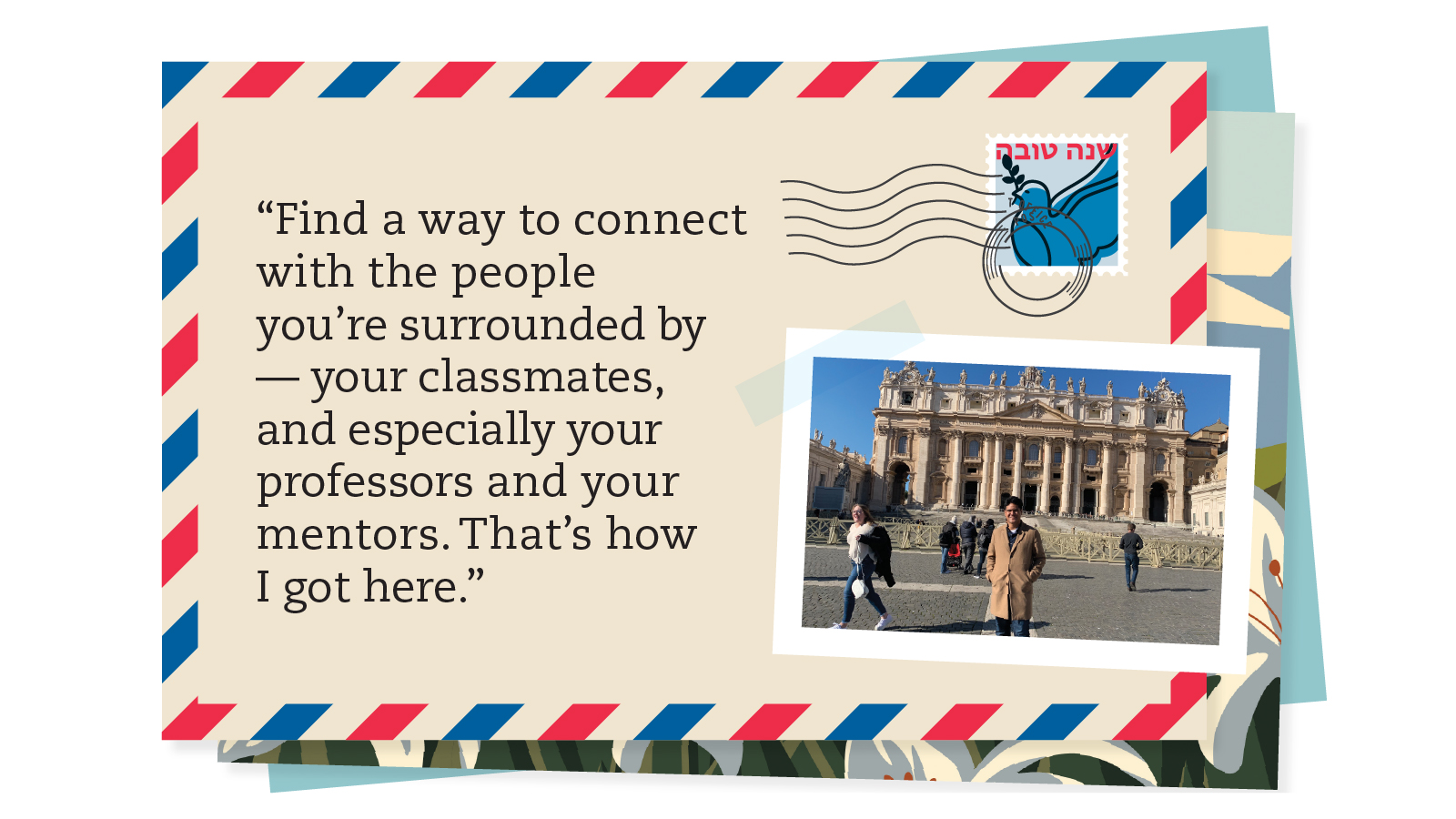
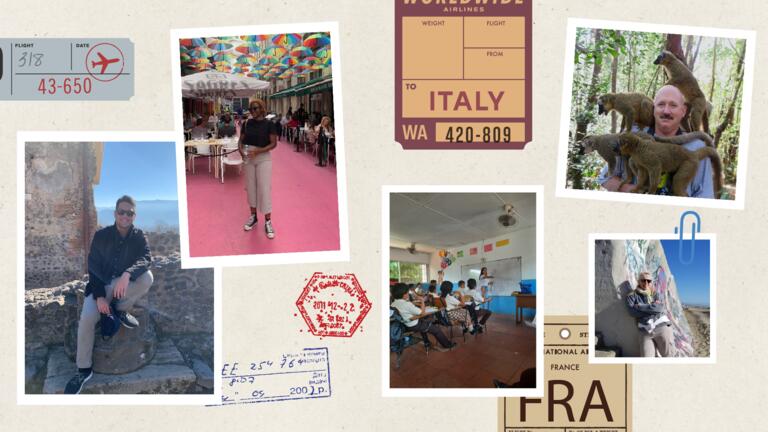
How To Live Abroad
For many people, the idea of living abroad is a wishful thought, a “someday” dream. For a few, though, the idea is an impetus to action. These USF graduates — a diplomat, an architect, a tech pioneer, a naval attaché, and a Peace Corps officer — all moved thousands of miles to pursue careers in lands far from their birthplaces. Want to live the expat life? Here are their tips on how you can do it, too.

Get Personal
John Iosefo’s advice about finding international employment is simple. “Connect,” he says. “Find a way to connect with the people you’re surrounded by — your classmates, and especially your professors and your mentors. That’s how I got here.” By “here,” Iosefo ’21 means Washington, D.C., studying Hebrew full-time in preparation for his two-year State Department assignment beginning in June at the U.S. Consulate in Tel Aviv, Israel, as a recipient of the Rangel Fellowship. In large part, he credits the relationships he cultivated with his USF professors for his successful fellowship application. “I’ll be honest. It wasn’t my GPA that made my application stand out,” Iosefo says. “There were applicants who had earned 4.0s and served as the presidents of clubs at Harvard who weren’t selected. Instead, it was the recommendation letters my professors wrote for me because I took the time to get to know them, to share my story and to hear theirs.” Authenticity and vulnerability are key, he says, because “you can’t recommend a robot.” It’s also not about asking the department head or program director for a recommendation.“It’s not about the biggest title you can get to recommend you. Focus on the mentors and teachers who know you well.”
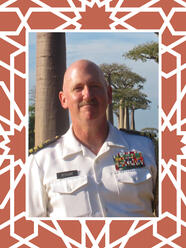
Learn the Language
Robert Stouse’s current life — spending his retirement in Sicily with his Italian husband, enjoying time with a coterie of fellow expats, volunteering as a language teacher to immigrants — might sound like total fulfillment to many. But Stouse earned his retirement. He spent years serving his country overseas with the Department of Defense, earning three graduate degrees, and learning to speak four languages. An early facility for language paved Stouse’s way to an international military career. After discovering a passion for French in high school, Stouse went on to major in French and minor in German at Georgetown University (where he also studied Italian). He then served as a supply officer in the U.S. Navy for four years, which inspired him to pursue an MBA degree from USF in 1999. The program offered a study tour in Europe, which he eagerly accepted. “A trip to Germany to study their business practices was a highlight of the program for me,” he says— not least because he knew the language. In fact, “knowing the language was the biggest catalyst for me living abroad,” Stouse says. Soon after the Navy launched the Foreign Area Officer (FAO) program, Stouse went back on active duty and was stationed as the U.S. Naval attaché in Morocco. From there, he accepted assignments in Madagascar and Cameroon before working at U.S. Africa Command and U.S. European Command in Germany until his retirement in 2021. “None of it would have been possible if I didn’t have my French when the FAO program was created. Language is a skill that opens doors and creates opportunities,” he says. “It’s more than a means for communication. In a competitive job environment, they also help to set you apart from your peers.”
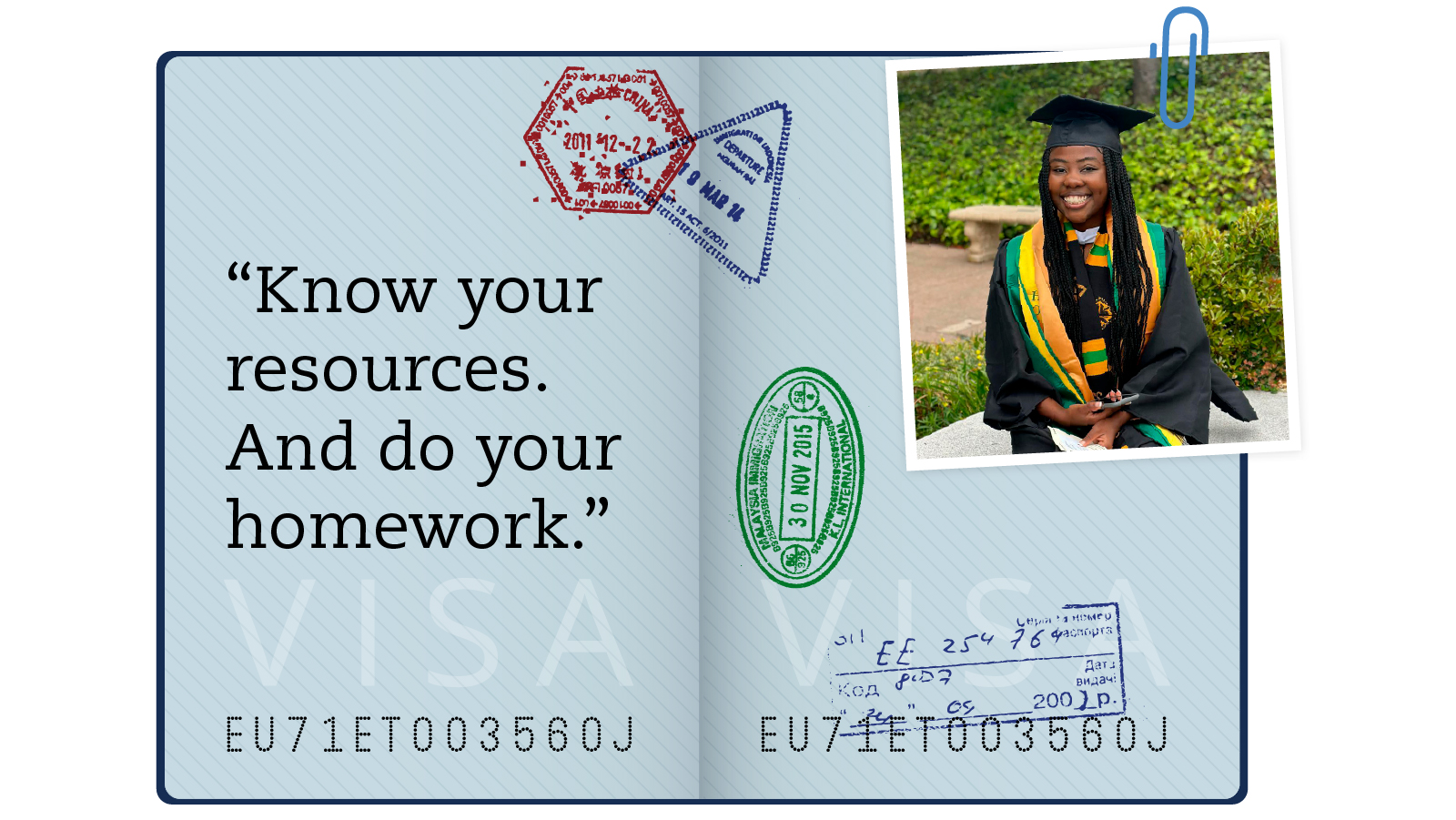
Sweat the Details
Concesse Nyirazikunze’s advice for international graduates looking to work in the U.S: “Know your resources. And do your homework.”The Rwandan native earned a spot at USF thanks to the SHE-CAN organization, which matches young women from post-conflict countries with universities in the United States. The goal is for them to acquire degrees and skills in specific fields and eventually return home to share their knowledge and become leaders in their respective industries. Architecture major Nyirazikunze ’23 works as a designer at Hart Howerton in San Francisco and wants to return to Rwanda as a licensed architect — a process that will take several years, with navigation of complicated visa laws. “Yes, the laws can be complicated, but there is help if you request it in time,” Nyirazikunze says. The International Student and Scholar Services office at USF is a key resource in researching the type of visas you’ll need. She emphasized, though, that staying on top of the details is a must, because excuses don’t cut it when it comes to international visas. “Ultimately, it’s up to you to remember due dates, deadlines, and the details of each type of visa,” Nyirazikunze says. She looks forward to returning home with her architecture license, so that she “can build residences that are affordable, to show people that they can have, and that they deserve, homes that are accessible and comfortable.”
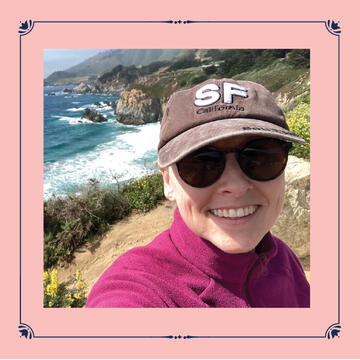
Find your People
For Sophie Wawrzyniak MBA ’99, international life has been a byproduct of following her passion. The Lille, France, native lived and worked at tech conglomerate Siemens in Germany before her job brought her to the U.S., where she pursued an MBA at USF in her drive to be at the forefront of the tech revolution.“It was the infancy of the internet, and opportunity was everywhere,” she says. “We all had big ideas and big drive to make them happen.” One of those ideas resulted in a one-day conference in 1998, “Surviving E-Business for Small Business,” that she and her classmates created to bring 270 small business principals to the Hilltop, with the goal of demystifying internet business practices. Leaders they’d recruited from every area of the nascent internet gave talks on how to create digital supply chains, use email, and build websites. “It was learning by doing,” says Wawrzyniak, principal technical program manager for Albertsons Company Inc. in Palo Alto. “We just asked who knew someone who could talk about a subject, and then went to that person and asked if they’d speak, and we kept going until we got the answers we wanted.”It’s one of the most important pieces of advice she’d give to anyone looking to move abroad: “Build a network of natives when you arrive. You’ll never know the landscape the way they do — but they will help you to learn it and introduce you to the people who will help you on the next leg of your journey.”
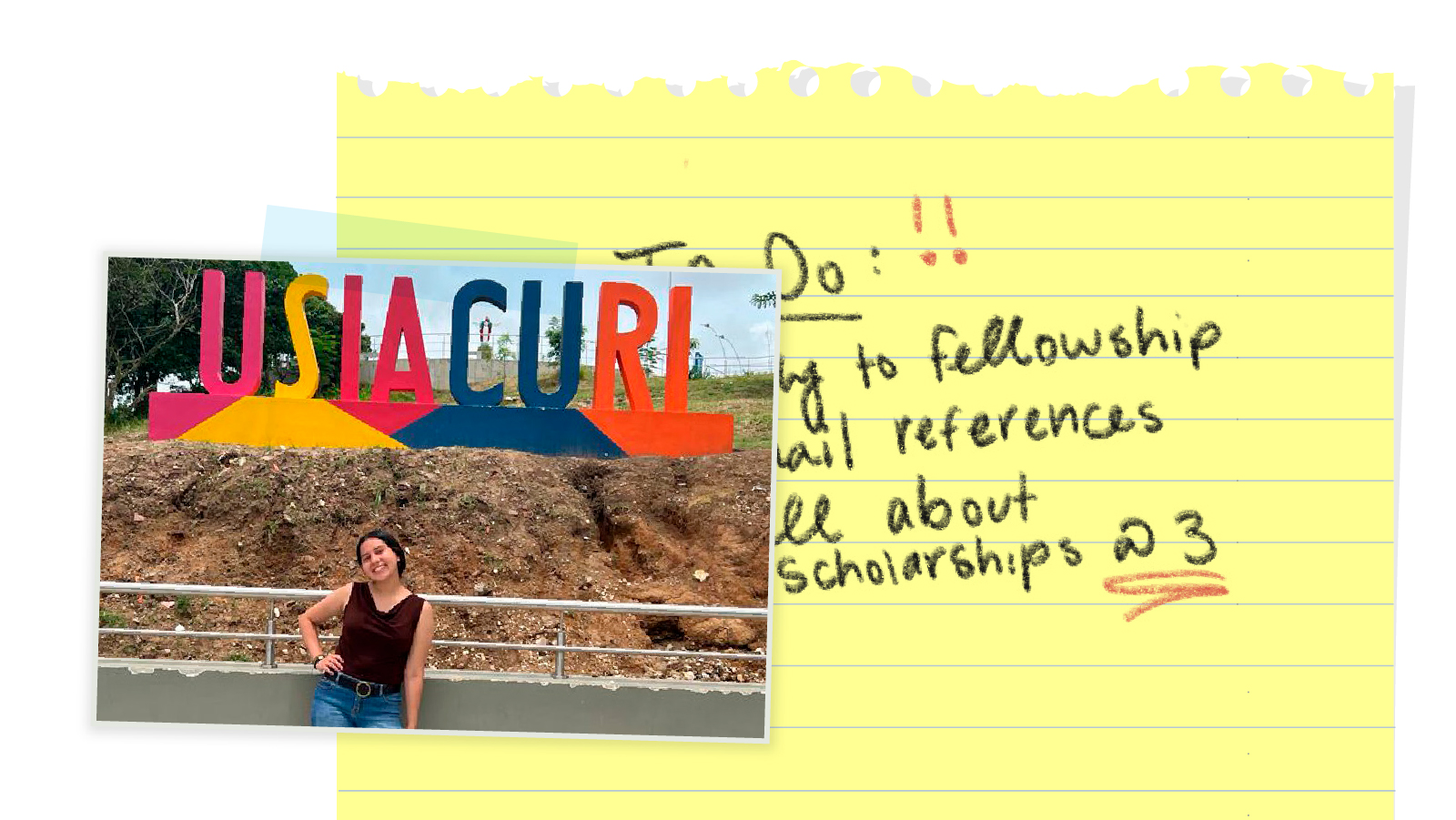
Apply to Everything
Maria Zamora ’20 was a 12-year-old in Carpenteria, California, when she realized the importance of putting yourself out there. Her seventh-grade class was studying world history, and it hit her that what they were really learning was international studies. After that class, she went up to her teacher, Mr. Hotchner, and declared that she wanted to be an ambassador. It was just her luck that he was from Virginia, had relatives working in the State Department, and told her that he could see her in that role. His validation was all she needed. While majoring in international studies at USF, Zamora applied to and attended an Arrupe Immersion in Cali, Colombia. “That trip gave me the idea for my thesis — beauty pageants as diplomacy,” she says. Upon returning, she applied for — and received — the International Studies Department’s Goldman Diplomacy scholarship, which took her back to Colombia to research her thesis. After graduating, Zamora applied to the Peace Corps. She was accepted and has been teaching English as a foreign language in Colombia since April 2022. Next up? She was recently awarded a Payne Fellowship, for which she’ll spend the next seven years completing grad school and embarking on a five-year contract with the United States Agency for International Development (USAID). Her best advice for anyone looking to follow in her footsteps? “Apply, apply, apply. We spend so much time talking ourselves out of applying to scholarships, programs, fellowships because we think we’re not good enough. But the only guarantee that you’ll be rejected is by not applying for any of those things in the first place.”